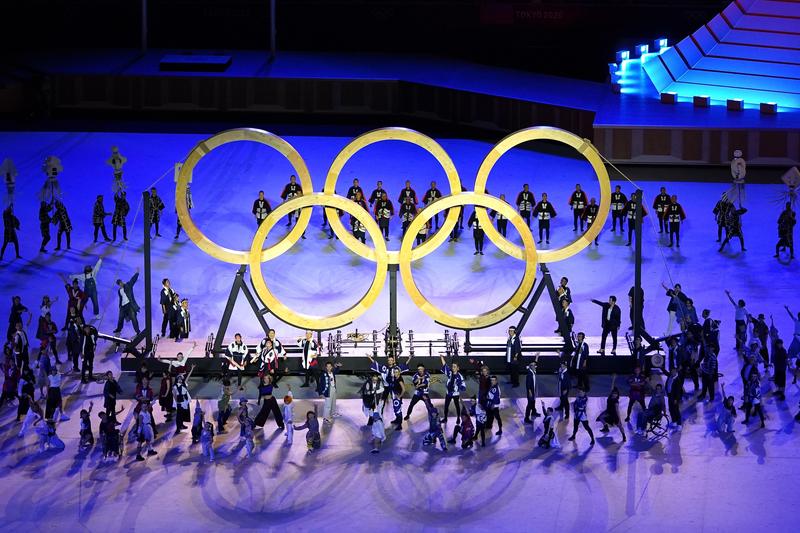“O Sport, you are Peace! You forge happy bonds between the peoples by drawing them together in reverence for strength which is controlled, organised, and self-disciplined.”
Founder of the International Olympic Committee (IOC) Pierre de Coubertin’s 1912 poem accurately portrays a version of the Olympic Games’ spirit which media all over the world generally try to promote. A shared sentiment is also illustrated by IOC’s values of Olympism — “excellence, respect, and friendship.” However, this idealization fails to disguise the disappointing fact that the Olympic Games have always been ultimately a game of politics.
The Olympic Games are not only a showcase for athletes but also the perfect platform for activists to attract the world’s attention to their political concerns. Oftentimes, significant circumstances turn athletes into political activists, representatives, and spokespersons for their country. These games tend to bring out overwhelming nationalist sentiments in their participants and their viewers. For example, the ever-lasting debate of whether “China” and “Chinese Taipei” are supposed to be considered distinct nations went viral on the internet after Wang Chi-Lin and Lee Yang beat former world Champions from China and won the gold medal for the men’s doubles in the badminton tournaments. Furious Chinese nationalists attacked Lee after he celebrated his win “to my country: Taiwan” on Facebook, pushing the controversial territorial dispute to the forefront. In the table tennis mixed doubles, Japanese table tennis player Ito Mima’s comment that “China would do anything to win the game” earned her the ire of Chinese netizens. Such episodes do not help in any way in harmonizing the already antagonistic relationship between countries like China and Japan.
Discrimination is common in the Olympic games as well. The international platform brutally exposes how systematic racism is played out in every part of the world, especially in countries with colonial pasts. In the 1907 London Games, South Africa initially sent an all-white Olympic team. Ever since then, the majoritarian black nation has been represented by exclusively white athletes. South Africa was banned from the Olympics for human rights violations from 1964 to 1992. However, this did not stop the spread of racism and white supremacy within the country. In 1948, the winning of the National Party, which enacted a series of policies to practice apartheid, became the last straw for the black community in South Africa and for the rest of the world. More than 20 African and Arab countries withdrew from the 1976 Montreal Game after the IOC refused to exclude New Zealand, who broke the international sports embargo on apartheid South Africa, out of the game. This event marks the unprecedented unity and determination of the international community to eliminate racial oppression. The bravery of challenging the IOC secured the black minority’s right of speech in significant humanitarian issues.
While the repercussions from the 1976 Montreal Game are still reverberating today, the IOC decided to end any involvement in politics by banning political demonstrations in the 2021 Tokyo Games. According to Rule 50 of the Olympic Charter, “No kind of demonstration or political, religious or racial propaganda is permitted in any Olympic sites, venues or other areas.” The chair of the IOC Athletes’ Commission, Kirsty Coventry says that “we want to amplify the voices of athletes and find more ways to support the values of the Olympic Games and what sport stands for.” However, whether athletes’ voices will even be heard with the implementation of such a rule remains a question. As Harry Edwards, an American sociologist and the co-creator of the Olympic Project for Human Rights, points out, even though the IOC claimed that 70% of athlete respondents agree with this decision, it is unclear whether these athletes are Black. However, it is known that the IOC officials will come after those who disobey the rule, according to John Carlos, a former field athlete and football player who is famous for his Black Power salute in the 1968 Summer Olympics in New Mexico, where he raised a black-gloved fist in solidarity for the Black community in order to protest against the unfair treatment towards Black athletes.
IOC has been a controversial actor not only for its potentially impartial rules but its role as the “invisible hand” in monopoly pricing. In the former Olympic Games, the IOC tried to maximize its profits by giving exclusive rights to a single sponsor in each of the 11 industry categories and therefore dramatically reducing output. This raised the price of advertising, leading to massive spending by the host cities. Despite the overwhelming domestic outcry that called for the canceling of the 2021 Tokyo Game in light of the pandemic and economic crisis, Japan’s decision to proceed with the Games is largely attributed to the billions of compensation they need to pay to the IOC in the case of a cancelation. As sociologist Helen Jefferson Lenskyi suggests, “only the IOC can formally decide to pull the plugs on the games.” Furthermore, Aki Tonami, a political scientist from the University of Tsukuba, adds that this remains the case even though “it can violate a country’s human rights protections with immunity, including athletes’ right to access domestic courts of law.”
Reflecting on the century-long history of the Olympic Games, it is evident that politics and the Olympics are inseparable, and they have become an essential part of each other. Even in a supposedly straightforward sports competition, it is intriguing to see how the complexity of international relations still becomes magnified and impactful outside of these events.
Edited by Olivia Shan


